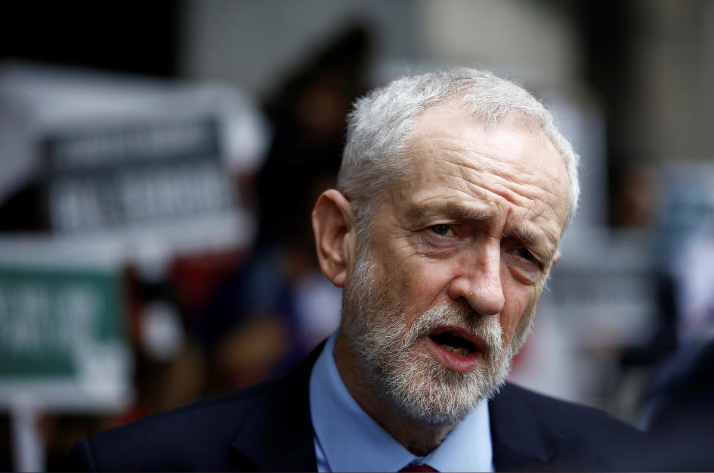Brexit, loyalty and the politics of the playground
My now five-year-old son dropped a bit of a bombshell last week.
'Daddy, I'm now the leader of reception class.'
He is blessed with his mother's unmistakeable integrity and his father's unshakeable confidence so it can sometimes be hard to separate fact from – expertly delivered – fiction. But I was sucked into the story.
'Oh, really? I didn't know the class had a leader.'
'Yes daddy, and it's me.'

I thought long and hard about what to say next. We hadn't heard about a school council election. There had been no note in the book bag suggesting our children were about to be given their first taste of democracy. We don't know everything that goes on day to day but I was fairly sure this type of activity would warrant at least an A5 sheet of paper and a few questions on the parent's WhatsApp group.
'How did you find out you were the leader?'
'Because 18 people wanted me to be it,' he said, almost exasperated that I'd question his popularity.
I had to know more.
'So, 18 people wanted you to be the leader?'
'Yes, daddy. Two people didn't care and three didn't want me to be the leader.'
I didn't ask who they were, but he quickly told me their names. One of them surprised me, it was a boy who my son is good friends with and most mornings will run around the playground with before school starts.
'Why didn't he want you to be the leader?'
'I wasn't sure what to expect. Maybe some policy disagreement. A deeply held conviction about the state of the paintbrushes that, while not friendship-ending, means they can never support another politically.
'Oh, he was just being selfish that day.'
It turned out he hadn't asked why. He didn't want to know, it was a 'yes or no' scenario. 'With me or against me' and this particular friend had been particularly disloyal in his decision.
Loyalty is a funny thing. With the ability to bind and blind in, quite possibly, equal measure.
As a binding force it can unite families and friends. Whole communities and whole nations. It can inspire great victories and bring about huge change.
As a blinding force it can make us shift our values in an instant.
Take an example from this week.
Labour leader Jeremy Corbyn was invited to a meeting of opposition leaders to discuss Brexit (what else?) with the prime minister. According to reports, he got up and left the meeting when he realised Chukka Umunna, the official spokesperson for The Independent Group had also been invited.
I have some sympathy for Jeremy Corbyn. He's a man pushed into leadership by forces I'm not sure even he can name or control. He's also a man who clearly and passionately believes in what he believes in. That's why I'm saddened when pictures of him attending funerals I might have avoided or sitting with leaders of groups I might not align myself are used in an attempt to smear him or somehow undermine his integrity.
But I have very little sympathy with 'loyal' supporters who, just months ago, suggested that meeting with those people was somehow the only path to peace or a better future and, this morning, are suggesting to sit with an elected British MP who speaks for a block of other elected British MPs is somehow beneath him.
I have even less sympathy for those suggesting semantically that somehow because Mr Umunna is not a 'leader' and TIG is not a 'party' Mr Corbyn was left with no other option but to pack up his things and walk out.
Loyalty is a funny thing.
A few years ago, a wise friend told me that real loyalty isn't just following what someone else does, it's living up to their values even when they can't.
I wonder if those most loyal to Mr Corbyn might have displayed it better by, rather than performing semantic gymnastics in an attempt to make his decision 'right' might have better displayed their loyalty to him by pointing out that he might have been 'right' in the first place.
That by being present, engaging in dialogue, sitting at the table with those he disagrees with or even questions their groups legitimacy is often a way to break down barriers and make real progress.
I wonder if those most 'loyal' to Mr Corbyn aren't those who blindly tweet, comment and write in defence of his actions, but instead defend his values even when he's struggling to live up to them.
I wonder what real loyalty looks like?
You see, if the future of politics (and, you might have guessed, it's not just politics) is nothing more than a game of 'follow the leader', then I fear loyalty might become the blindfold that allows us to be led off all sorts of cliffs.
If loyalty becomes nothing more than an entrance exam for finding out who's 'in' and who's 'out' or worse, who's 'in' and who's 'got a few questions', then I fear what we're loyal to isn't an idea, a set of values, a party or a community. What we're loyal to is whatever that person or people decide in that particular moment, in all their human frailty and ego.
Because, when all is said and done, if loyalty is judged on nothing more than who will support you no matter what you say or how you behave:
If loyalty is nothing more than a list of names 'yes' and 'no', 'in' and 'out':
It might have more place in the playground than anywhere else.
Matt White is a Northern Irish TV producer living in Essex and working in London. Follow him on Twitter @mattgwhite











